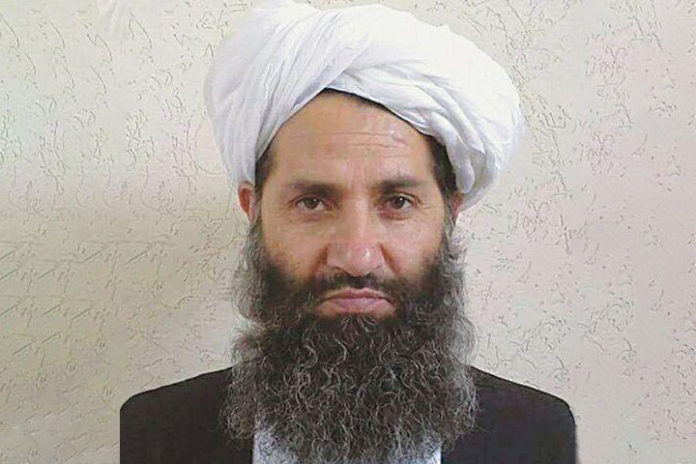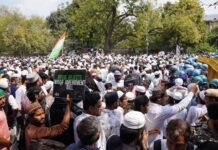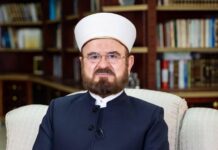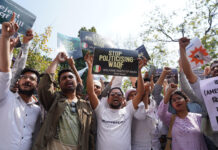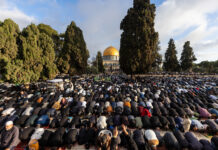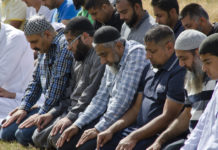The International Criminal Court Chief Prosecuter has announced that he has applied for arrest warrants for the leader of Afghanistan as well as the country’s Chief Justice over the treatment of women and girls in the country.
In a statement today, Karim Khan said there are reasonable grounds to believe that the Supreme Leader of the Taliban, Hibatullah Akhundzada, and the Chief Justice of the Islamic Emirate of Afghanistan, Abdul Hakim Haqqani, bear criminal responsibility for “the crime against humanity of persecution on gender grounds.”
The IEA has called the decision unjust and “politically-motivated.”
Khan said: “My office has concluded that these two Afghan nationals are criminally responsible for persecuting Afghan girls and women, as well as persons whom the Taliban perceived as not conforming with their ideological expectations of gender identity or expression, and persons whom the Taliban perceived as allies of girls and women. This persecution was committed from at least 15 August 2021 until the present day, across the territory of Afghanistan.
“This ongoing persecution entails numerous severe deprivations of victims’ fundamental rights, contrary to international law, including the right to physical integrity and autonomy, to free movement and free expression, to education, to private and family life, and to free assembly…
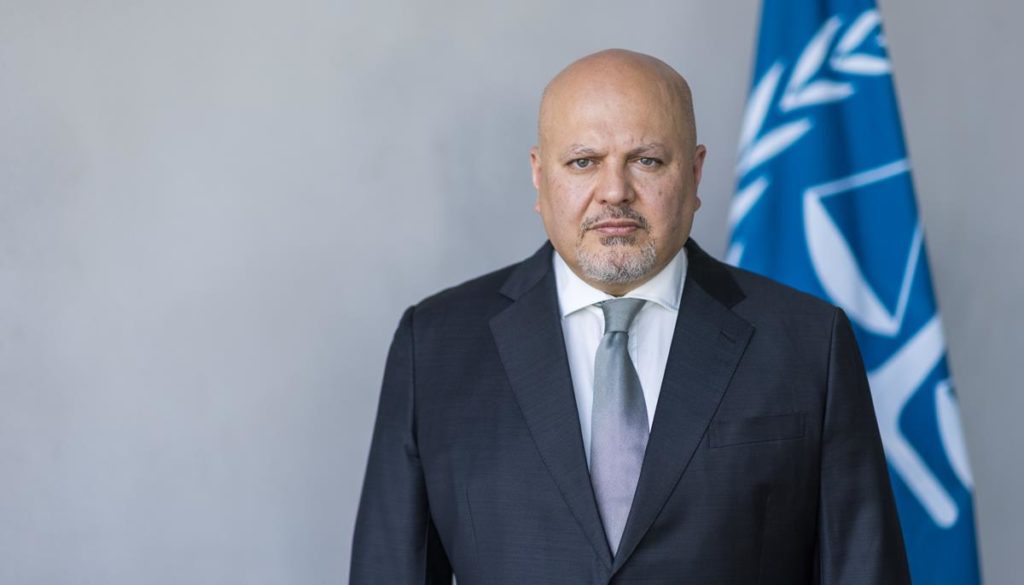
“Perceived resistance or opposition to the Taliban was, and is, brutally repressed through the commission of crimes including murder, imprisonment, torture, rape and other forms of sexual violence, enforced disappearance, and other inhumane acts.”
Khan said these requests for warrants are based on expert and witness testimonies, official decrees, forensic reports, statements by the suspects themselves and other Taliban representatives, and audio-visual material.
Subscribe to our newsletter and stay updated on the latest news and updates from around the Muslim world!
He added: “These applications recognise that Afghan women and girls as well as the LGBTQI+ community are facing an unprecedented, unconscionable and ongoing persecution by the Taliban. Our action signals that the status quo for women and girls in Afghanistan is not acceptable. Afghan survivors, in particular women and girls, deserve accountability before a court of law.”
Khan further added that he would not accept the Taliban’s interpretation of Shari’ah as a defence.
IEA statement
Afghan’s Foreign Ministry condemned the actions of the ICC chief prosecutor in a statement.
“An arrest warrant sought by a ‘prosecutor’ of the purported ‘court’ for the Leader of the Islamic Emirate of Afghanistan, the Esteemed Amir-ul-Mu’mineen (HA) and the honorable Chief Justice of the state, Sheikh Abdul Hakim Haqqani, is akin many other decisions of this institution devoid of just legal basis, duplicitous in nature and politically-motivated.

“It is unfortunate that such baseless allegations are being levelled against the honorable leaders of the Islamic Emirate at a time when Afghanistan enjoys nationwide peace, its people have breathed a sigh of relief, private prisons, kidnappings, islands of power and numerous other miseries and inhumane activities have been eradicated.
“Regrettably, this institution had turned a blind eye to the war crimes & crimes against humanity committed by foreign forces & their domestic allies during their twenty-year occupation of Afghanistan. Such inappropriate behavior further erodes the already non-existent credibility of the said institution, and renders its status & decisions completely meaningless on international level.
“The said institution should end attempts of imposing a specific interpretation of human rights on the entire world while disregarding the religious & national values of peoples of the world.”
Sheikh Hibatullah Akhundzada
Hibatullah Akhundzada, is the current supreme leader of Afghanistan.
Born around 1961 in the Panjwai district of Kandahar Province, Afghanistan, Akhundzada is a Pashtun from the Nurzai tribe.
He studied Islamic sciences under his father and later in madrassas in Pakistan, particularly in Quetta, after the Soviet invasion of Afghanistan forced his family to migrate.
Akhundzada joined the Taliban movement in the 1990s and served as a judge in the Taliban’s Islamic courts during their rule from 1996 to 2001.
He emerged as a significant religious figure within the Taliban, particularly known for his role in the shadow court system during the insurgency against the U.S.-backed Afghan government.
Akhundzada became the supreme leader of the Taliban in May 2016 after the death of Mullah Akhtar Mohammad Mansour in a U.S. drone strike.
He led the Taliban to victory in August 2021, following the withdrawal of U.S. and NATO forces, and has since been the head of state with absolute power, implementing Shari’ah law.
Akhundzada has rarely appeared in public and makes significant decisions from Kandahar, where he primarily resides.
Abdul Hakim Haqqani
Abdul Hakim Ishaqzai is an Afghan Islamic scholar and writer who has served as the Chief Justice of Afghanistan since 2021.
Born in 1967 in the Panjwayi District of Kandahar Province, Afghanistan, he is one of the founding members of the Taliban and was a close associate of the late leader Mullah Mohammed Omar.
Haqqani graduated from and has taught at Darul Uloom Haqqania, a Deobandi Islamic seminary in Pakistan. He has also run his own madrasa in the Ishaqabad area of Quetta, Pakistan.
His roles within the Taliban have included serving as chief justice of the Supreme Court during the 1996–2001 Islamic Emirate of Afghanistan and leading the Taliban’s negotiation team in Qatar for peace talks.






